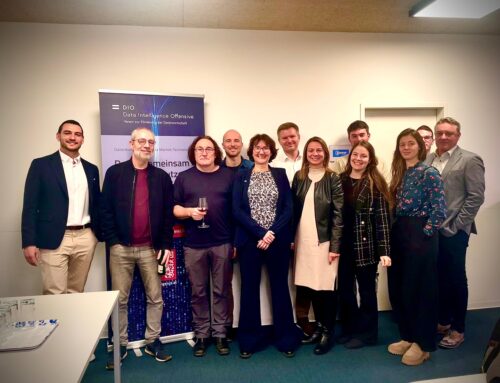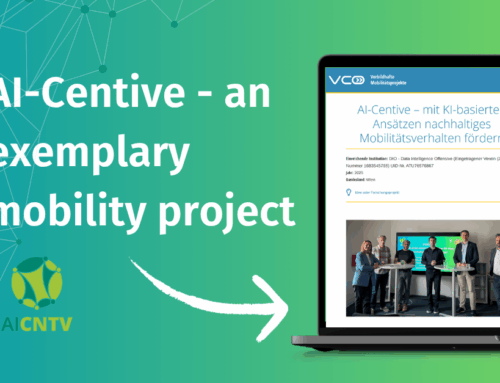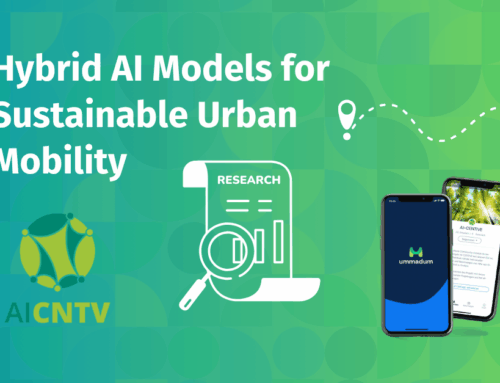On May 21, 2024, the Council of the European Union passed the world’s first law regulating artificial intelligence (AI). This groundbreaking legislation, which adopts a risk-based approach, aims to promote the development and use of safe and trustworthy AI systems. Its primary objectives are to protect the fundamental rights of citizens, foster innovation and trust, enhance the competitiveness of European companies, and provide regulatory clarity. But how will this groundbreaking law affect research into the mobility transition, such as the AI-CENTIVE project?
Protection of Fundamental Rights
The AI Act ensures that all AI systems respect the fundamental rights of citizens. This is crucial in the context of mobility transition, where sensitive data such as movement profiles and personal preferences are often analyzed. The stringent regulations and transparency requirements of the Act ensure that this data is used securely and ethically. By doing so, the public’s trust in new mobility solutions is strengthened, paving the way for more widespread acceptance and adoption.
Promoting Innovation and Trust
A clear legal framework is essential to build trust in new technologies. The AI Act provides such a framework, laying a solid foundation for innovative research. Projects like AI-CENTIVE, which focuses on developing sustainable mobility solutions, can benefit from this legal certainty. Researchers can rely on the fact that their investments and developments are protected, encouraging them to pursue new ideas and create innovative solutions for the mobility transition.
Regulatory Clarity and Efficiency
The AI Act simplifies the development and implementation of AI technologies by providing clear rules and guidelines. This reduces uncertainties and administrative burdens often associated with complying with different national regulations. For research projects, this means less bureaucratic effort and more focus on actual research. Additionally, costs can be reduced, fostering the economic stability and growth of projects and companies working on mobility transition initiatives.
Enhancing European Competitiveness
The introduction of the AI Act gives European companies and research projects a competitive edge. As the EU is the first region globally to implement comprehensive AI regulation, it sets a global standard. Companies and research institutions from other regions will need to meet these standards to operate in the EU market. This strengthens the position of European projects on the global stage, enabling them to share their technologies and insights internationally.
Supporting an Innovation-Friendly Legal Framework
The AI Act promotes an innovation-friendly environment that allows researchers to develop and test new technologies under real-world conditions. This is particularly relevant for the mobility transition, where complex and multifunctional AI systems are often needed. Projects like AI-CENTIVE can thus test and refine their technologies in practical settings, increasing the effectiveness and acceptance of the developed solutions. The innovation-friendly legal framework ensures that Europe remains a leader in the development and implementation of AI technologies worldwide.
The new EU AI Act represents a significant development. It provides a clear and secure legal framework that fosters AI research, supports innovation, and strengthens the competitiveness of European projects.
About AI-CENTIVE
As part of Austria’s Mobility Strategy 2040, the AI-CENTIVE project was launched to advance the state of the art in AI research and build a complex mobility data ecosystem. AI-CENTIVE aims to support and incentivize sustainable mobility behavior, thereby reducing carbon emissions from private car use and petrol/diesel-based transportation.
AI-CENTIVE will produce customized incentives leveraging AI predictions aimed at motivating citizens to adopt new sustainable options and overcome barriers to more sustainable behavior. This includes the need to sign up for new services or overcoming the perceived convenience of traditional transportation methods.
To achieve this, AI-CENTIVE adopts AI-based approaches to predict complex mobility behavior and optimize incentives in a multidimensional manner.
Our mission is to develop AI-based incentivization techniques for influencing citizens’ mobility choices based on multimodal models of mobility activity, knowledge graphs, and data analytics. Our ultimate vision is to enable and incentivize Austrian citizens to find more sustainable mobility choices, increasing awareness and fostering a positive attitude towards sustainable mobility.




